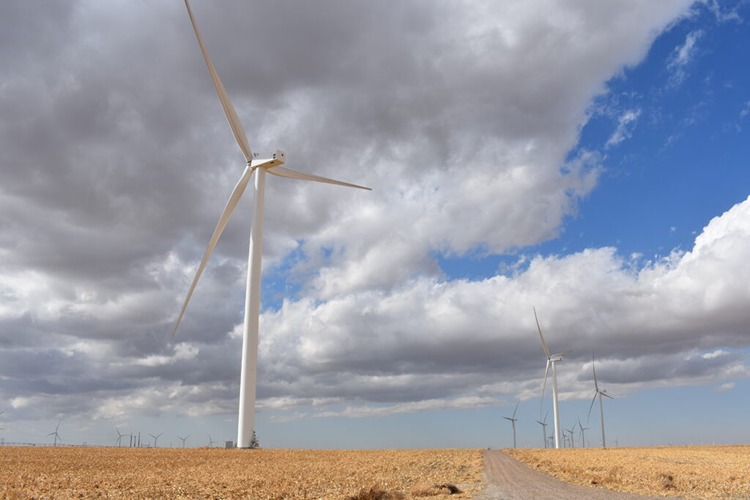By Allison Kite, Kansas Reflector
After a bevy of legislation seemingly meant to bring wind energy development to a halt, Kansas senators are considering a bill that could appease rural neighbors annoyed by turbines.
For years, the plains of Kansas has been among the largest sources of wind energy in the United States. Both Democratic and Republican lawmakers have lauded wind development in Kansas.
But that has come with backlash.
“The night sky surrounding the town I live in was forever tarnished,” said Jonathan Sill, who lives near a wind farm in Marshall County.
For the last couple of years, Sill and other rural residents have appeared in droves at the Capitol to testify for bills that would give them more power over the placement of wind farms – even when turbines are on their neighbors’ property.
“That would be one thing that I have heard from several constituents is the disruption of sleep, headaches, the problems with some animals being … unrestful,” said Sen. Virgil Peck, R-Havana.
Other past legislation would have required turbines be so far from property lines that industry representatives said it would be nearly impossible to find acceptable locations. The bills would have also limited noise and shadow flicker so severely they they could shut down projects already in operation.
But now, senators are considering legislation that would require wind farms to limit the red lights at the top of turbines that blink to alert planes to their presence. On the flat Kansas plains, the eerie synchronized lights can be seen for miles.
David Fisher, a retired business owner, said he was tired of seeing the blinking red lights near his home in Centerville.
“I want to protect my family from having to live with these,” Fisher told the Senate Utilities committee Wednesday. “In our beautiful state of Kansas, there’s 3,500 red lights on top of wind turbines blinking needlessly, illuminating our dark sky.”
Senators are considering two pieces of legislation: one that would require existing wind farms to obtain technology that detects planes and only activates the blinking red lights when one is nearby and one that would require the same for new wind farms. In the case of both bills, the requirement kicks in if the Federal Aviation Administration approves the wind farm developer’s plan.
Members of the Senate Utilities Committee heard testimony on the legislation Wednesday and Thursday, and the chairman, Sen. Robert Olson, R-Olathe, said members will likely vote next week.
Unlike previous legislation, the two bills senators are considering have support from members of the wind industry.
Kimberly Gencur Svaty said members of the Kansas Advanced Power Alliance, which she represents as a lobbyist, back the legislation requiring light-mitigating technology on future wind farms. Two wind farms under construction now will use the technology.
Gencur Svaty had concerns about the bill requiring existing wind farms to install the technology. She said the legislature has typically been “slow to force industries … to incur a cost retroactively to their investment,” which she agrees with.
“But you do find us here today in general support for this bill, even though it means that over the course of time, the renewable energy industry, the clean energy industry, would be essentially on the hook for millions upon millions upon millions of dollars of new costs,” she said.
Gencur Svaty asked that the bill not take effect until 2025 to give the industry time to implement the technology. She said only two companies provide it.
“Kansas is by far and away the biggest wind state to deliberate retroactivity related to light-mitigation technology in the United States,” she said.
If Kansas passes the legislation, she said, other states could quickly follow.
“So what happens when a glut of states pass such legislation and you have a whole series of new projects … that need to install light-mitigation technology as well as a litany of existing projects … and there are still only two vendors?” she said.
The legislation also has support from environmental and wildlife groups.
Zack Pistora, a lobbyist for the Kansas chapter of the Sierra Club, said the organization supports clean energy while considering the effects on nearby communities.
“We don’t always see industries in our state, in our view, take responsibility for some of the harmful things that they impose on the host communities,” Pistora said, “and the wind industry, in our view, has done a good job.”

















































